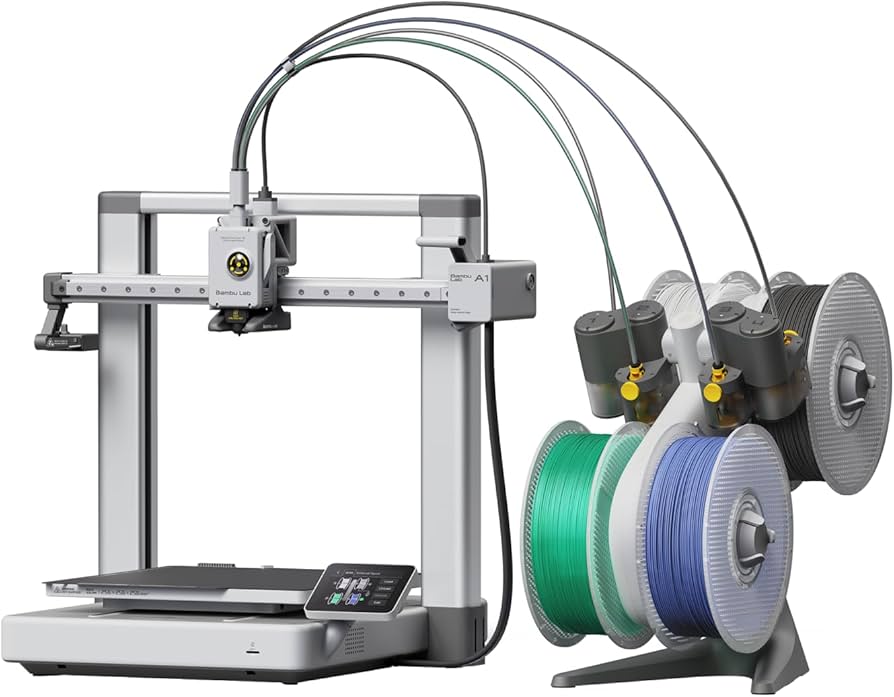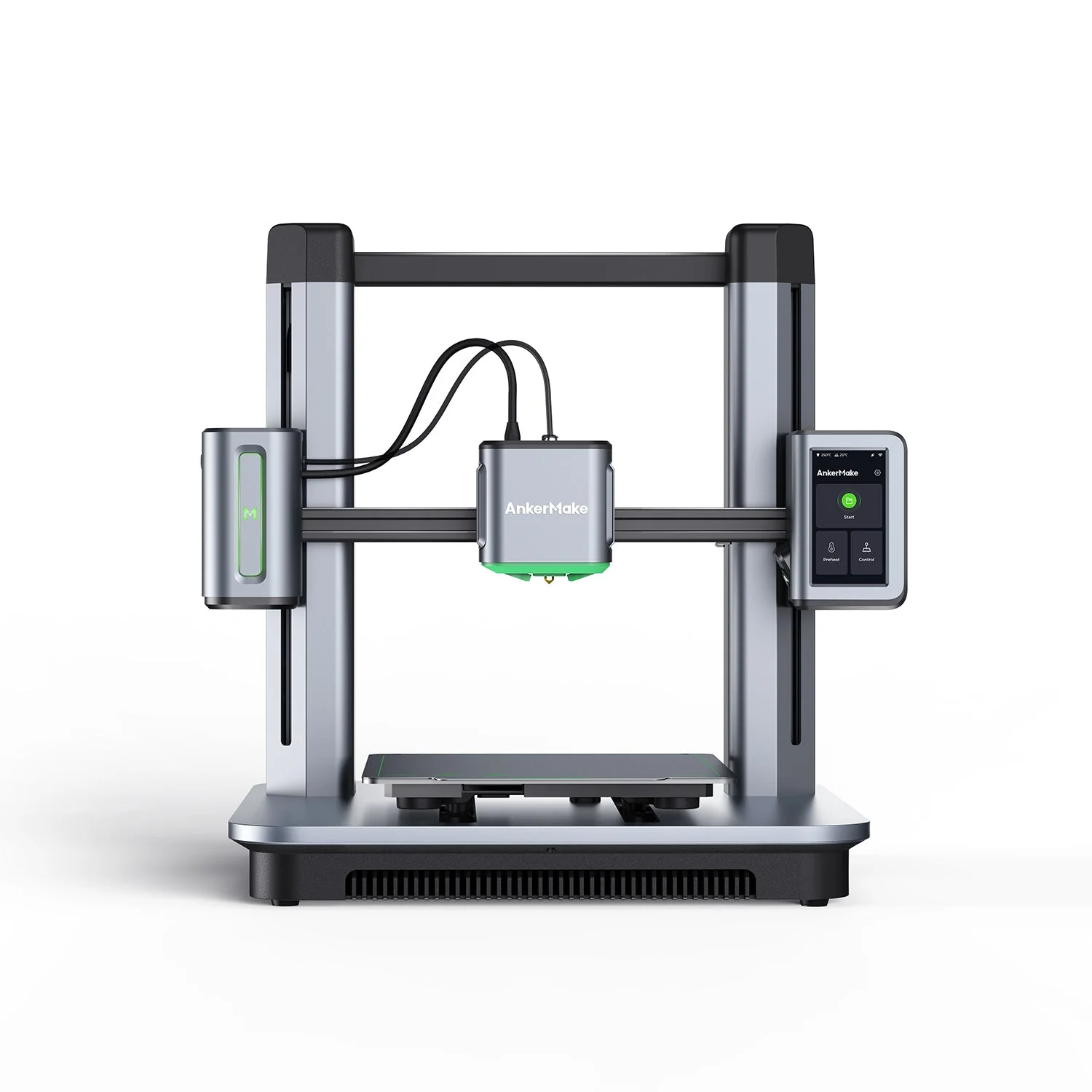Compare A1 vs M5
Comparison between the best 3D printers
Choose the best 3D printer at the best price. The cheapest 3D printers are here.
Buy a 3D printer here with 3D Fila.
 |
 |
|
| Model | A1[BUY A1] |
M5 |
| Printing Material | Filament | Filament |
| Buy Filament for Bambu Lab A1 | Buy Filament forAnkerMake M5 | |
| Estimated price | $700,00 | $497,00 |
| Manufacturer | Bambu Lab | AnkerMake |
| Release Year | 2023 | 2023 |
| Print Volume [mm] | 256x256x256 | 235x235x250 |
| Printer Size [mm] | 385x410x430 | 502x438x470 |
| Weight [kg] | 8,3 | 12,6 |
| Power Loss Recovery | YES | YES |
| Enclosed printer | NO | NO |
| Bed Leveling | Automatic | Automatic |
| Filament End Sensor | YES | YES |
| Bed type | Heated | Heated |
| Power supply system | Direct Drive | Direct Drive |
| Standard nozzle | 0,4 | 0,4 |
| Maximum Nozzle Temperature [°C] | 300 | 260 |
| Maximum Bed Temperature [°C] | 100 | 100 |
| Maximum printing speed [mm/s] | 500 | 500 |
| Filament holder | YES | YES |
| Camera for supervision | YES | YES |
| Recommended filaments | PLA, PETG, TPU, PVA | PLA, PETG, ABS |
| Recommended slicers | SuperSlicer, PrusaSlicer, Cura, OrcaSlicer | AnkerMake Studio (macOS, Windows), Simplify3D, Ultimaker Cura, PrusaSlicer |
| Maximum Resolution [mm] | 0,1 | 0,1 |
| Processor | ||
| Display | Touchscreen 3,5 | Touchscreen 4,3'' |
| Power Supply | 350 W | 350 W |
| Connectivity | Wi-Fi, Bambu-Bus, Cartão Micro SD | Wi-Fi, USB-C, OTA Upgrade |
| Operating systems | Windows, Linux, Macbook | Windows, Linux, Macbook |
| Date of registration in the system | 2024-07-17 | 2024-07-08 |
| Release date | 2023 | 2023 |
| Extra features | The BambuLab A1 printer features fully automatic calibration, multi-color printing with the AMS system, active flow rate compensation, quick nozzle change with a clip, active motor noise cancellation, a build volume of 256x256x256 mm³, a maximum extruder temperature of 300°C, and a heated bed of up to 100°C. In addition, it has high precision, a machine health management system and an intuitive 3.5-inch touchscreen interface. | The AnkerMake M5 printer stands out for its impressive print speed, reaching up to 500mm/s. It features AI print monitoring, an integrated camera for creating timelapses, auto-leveling bed with pressure sensor, direct extruder, flexible PEI-coated build plate, and Wi-Fi and USB-C connectivity. Assembly is quick and easy, and the printer is designed to deliver high print quality and ease of use. |
| Support for multiple colors and materials (AMS and CFS) | YES | NO |
Notes * |
||
| Cost-benefit | 7 / 10 | 7 / 10 |
| Hardware | 4.2 / 10 | 3.5 / 10 |
| Tela | . | . |
| Print volume | 4 / 10 | 3 / 10 |
| Performance | 4 / 10 | 4 / 10 |
| [BUY A1] |
Conclusion |
| In conclusion, both the Bambu Lab A1 and the AnkerMake M5 are strong contenders in the 3D printing market, each catering to different user needs and preferences. The Bambu Lab A1 stands out with its advanced features such as multi-color printing capabilities, high maximum extruder temperature, and a range of intuitive technologies that enhance print quality and ease of use. Its larger print volume and active motor noise cancellation contribute to an overall superior user experience, albeit at a higher price point. On the other hand, the AnkerMake M5 offers impressive print speeds and significant ease of assembly, making it particularly appealing for users prioritizing speed and straightforward setup. While it lacks some of the advanced features found in the A1, its versatility in filament compatibility and user-friendly design are noteworthy. Ultimately, the choice between these two printers will come down to budget considerations and specific printing needs. The Bambu Lab A1 is a great option for users willing to invest in advanced capabilities and larger print volume, while the AnkerMake M5 is suitable for those looking for a solid, efficient printer at a more accessible price. Both printers deliver good cost-benefit ratios, making them excellent choices for both beginners and more experienced users in the 3D printing landscape. |

